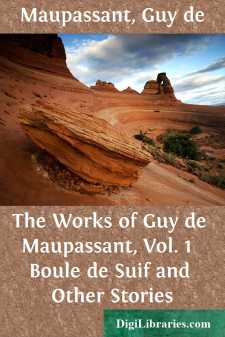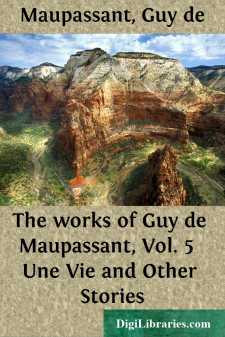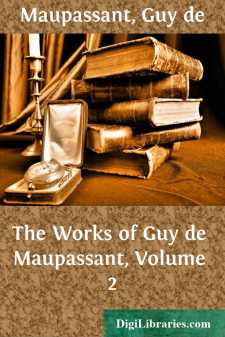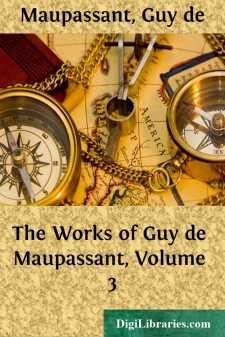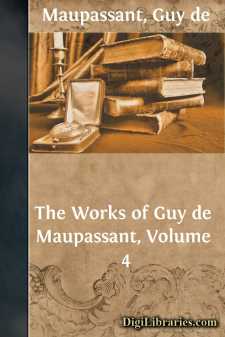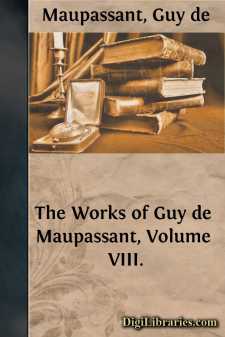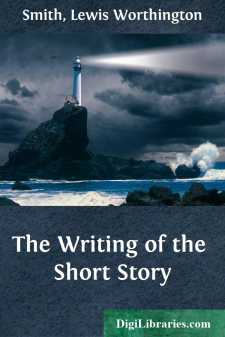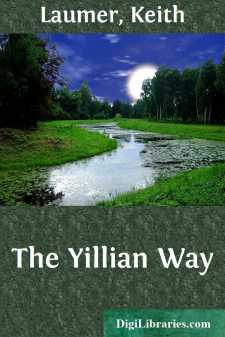Fiction
- Action & Adventure 178
- Biographical 13
- Christian 59
- Classics 6965
- Coming of Age 4
- Contemporary Women 3
- Erotica 8
- Espionage/Intrigue 12
- Fairy Tales, Folklore & Mythology 236
- Family Life 169
- Fantasy 117
- Gay 1
- General 595
- Ghost 31
- Historical 808
- Horror 42
- Humorous 159
- Jewish 25
- Legal 2
- Medical 22
- Mystery & Detective 313
- Political 49
- Psychological 41
- Religious 64
- Romance 156
- Sagas 11
- Science Fiction 726
- Sea Stories 113
- Short Stories (single author)
- Sports 10
- Suspense 1
- Technological 8
- Urban Life 31
- War & Military 173
- Westerns 199
Short Stories (single author) Books
Sort by:
The first aim of art, no doubt, is the representation of things as they are. But then things are as our eyes see them and as our minds make them; and it is thus of primary importance for the critic to distinguish the precise qualities of the eyes and minds which make the world into imaginative literature. Reality may be so definite and so false, just as it may be so fantastic and so true; and, among...
more...
The most robust and masculine of recent French novelists is a typical Norman, sprung from an ancient noble family, originally of Lorraine, but long settled in the Pays de Caux. The traveler from England towards Paris, soon after leaving Dieppe, sees on his left hand, immediately beyond the station of St. Aubin, a handsome sixteenth-century house, the Château de Miromesnil, on a hill above the railway....
more...
I Little George was making hills of sand in one of the walks; he took it up with both his hands, made it into a pyramid, and then put a chestnut leaf on the top, and his father, sitting on an iron chair was looking at him with concentrated and affectionate attention, and saw nobody but him in that small public garden which was full of people. All along the circular road other children were occupied in...
more...
"After all," Count d'Avorsy said, stirring his tea with the slow movements of a prelate, "what truth was there in anything that was said at Court, almost without any restraint, and did the Empress, whose beauty has been ruined by some secret grief, who will no longer see anyone and who soothes her continual mental weariness by some journeys without an object and without a rest, in...
more...
Count Eustache d'Etchegorry's solitary country house had the appearance of a poor man's home, where people do not have enough to eat every day in the week, where the bottles are more frequently filled at the pump than in the cellar, and where they wait until it is dark before lighting the candles. It was an old and sordid building; the walls were crumbling to pieces, the grated, iron...
more...
OF "THE NOVEL" do not intend in these pages to put in a plea for this little novel. On the contrary, the ideas I shall try to set forth will rather involve a criticism of the class of psychological analysis which I have undertaken in Pierre et Jean. I propose to treat of novels in general. I am not the only writer who finds himself taken to task in the same terms each time he brings out a new...
more...
by:
Andrew Lang
STORY OF THE YOUNG MAN WITH THE CREAM TARTS During his residence in London, the accomplished Prince Florizel of Bohemia gained the affection of all classes by the seduction of his manner and by a well-considered generosity. He was a remarkable man even by what was known of him; and that was but a small part of what he actually did. Although of a placid temper in ordinary circumstances, and accustomed...
more...
Narrative Forms —This little volume is meant to be a discussion of but one of the various forms that literature takes, and it will be first in order to see what are the elements that go to the making of a narrative having literary quality. A story may be true or false, but we shall here be concerned primarily with fiction, and with fiction of no great length. In writing of this sort the first...
more...
by:
Keith Laumer
Jame Retief, vice-consul and third secretary in the Diplomatic Corps, followed the senior members of the terrestrial mission across the tarmac and into the gloom of the reception building. The gray-skinned Yill guide who had met the arriving embassy at the foot of the ramp hurried away. The councillor, two first secretaries and the senior attaches gathered around the ambassador, their ornate uniforms...
more...
There are not many who will remember him as Thomas Jefferson Brown. For ten years he had been mildly ashamed of himself, and out of respect for people who were dead, and for a dozen or so who were living, he had the good taste to drop his last name. The fact that it was only Brown didn't matter. "Tack Thomas Jefferson to Brown," he said, "and you've got a name that sticks!" It...
more...


